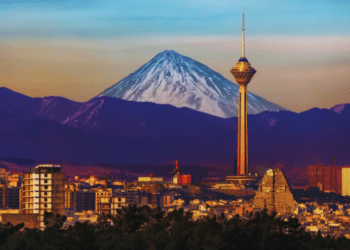In today’s National Post, MLI Senior Fellow Ken Coates and Managing Director Brian Lee Crowley discuss Aboriginal communities and the opportunities for partnerships and collaboration in natural resource development. Coates and Crowley not only explore the potential, but also point to the success stories already happening. While Coates and Crowley acknowledge the hard work that remains to be done, they conclude that the benefits are vast and that Canada and Aboriginal people are on the right path.
Resource Development Offers Opportunity for Aboriginal Communities
Ken Coates and Brian Lee Crowley, National Post, May 15, 2013
Aboriginal Canada wants in. For generations, natural-resource wealth and opportunity almost entirely bypassed Aboriginal communities. But now, empowered by court decisions, land-claims settlements, and rising Indigenous political power, Aboriginal people are determined to get a fair share from the development of natural resources on their territories.
For governments, developers and the country at large, significant adjustments are required if new partnerships and collaboration are going to become the hallmark of resource activity in Canada. The good news on this front is two-fold. First, First Nations, Métis and Inuit communities are ready to participate in collaborative activities. Second, Canada already has a significant number of examples of practical and effective partnerships with Aboriginal communities.
Aboriginal communities that are approached by resource companies typically are called upon to perform an exercise in socio-economic calculus. Negotiations focus on skills and job training for local residents, local hire provisions, opportunities for Aboriginally-controlled businesses, a defined role in environmental oversight and remediation, direct financial returns from resource sales, contributions to community projects and programs, and, increasingly, the possibility for equity ownership. The returns can be considerable, and can provide just compensation for developing resources on Aboriginal lands.
Aboriginal governments also have to determine if the proposed developers are trustworthy, and if regional and national governments will support the collaborations.
Thanks to this unsung quiet revolution, Aboriginal people have begun to seize the opportunities created by resource development. Many communities have established development corporations, some of which have holdings in the hundreds of millions of dollars. Within a few short years, several of these Aboriginally owned companies, such as the Inuvialuit Regional Corporation, have become major forces in regional development.
Mining companies have established training and upgrading programs for local residents. Resource developers have supported projects from infrastructure to traditional harvesting activities. Aboriginal groups have established dozens of companies to support and serve resource developers. In the future, equity investments by Aboriginal groups will feature prominently in community development schemes.
Canadians should know that the new development realities are feasible, and that commercialization already is showing real dividends. In Northern Quebec, Indigenous peoples are actively engaged with hydroelectric and mining activity. The Voisey Bay mine in Labrador has, likewise, developed constructive relationships with local Aboriginal people. Cameco and Areva, two uranium producers in northern Saskatchewan, have impact and benefit agreements with several regional communities. British Columbia already has instituted royalty revenue sharing for forestry and mining development. Across the territorial North, modern land claims agreements provide Indigenous people with prominent roles in development, including a share of resource revenue. A single mine in Nunavut is expected to pay as much as $2 billion in royalties to the Inuit.
In the 1970s, Aboriginal opposition to the Mackenzie Valley natural gas pipeline stopped a promising mega-project. Times change. The last (and now stalled) proposal for the Mackenzie Valley pipeline would have seen substantial Aboriginal equity ownership. In between, an oil pipeline was built from Norman Wells to Alberta, with substantial Indigenous participation. Even on this, the most contentious of development topics – pipelines – Aboriginal people have found ways to work constructively with developers and project proponents.
There are some Aboriginal communities, and many individuals, who are unalterably opposed to resource development in their traditional territories. But a large number, probably a majority, are open to resource developments, provided that they are involved from the outset in the decision-making processes and that the development proceeds on mutually acceptable terms.
Major issues remain unresolved. Indigenous communities do not yet have trusted templates for agreements with resource companies. Many communities are afraid of settling too soon and for too little. Most of the agreements are highly localized; regional arrangements, like those in Labrador, northern Quebec, and Nunavut, are not the most common, but they hold the most promise for the future. Many Aboriginal communities are not currently able to capitalize on employment and business creation opportunities. More governments in Canada need to be convinced to follow emerging best Canadian and international practices.
If we get the relationship right, natural resource wealth can unlock a brilliant future for Aboriginal and non-Aboriginal Canadians together. Given their newly recognized legal and political power and authority, however, Aboriginal people can and will be a powerful obstacle to any development that does not respect their interests, their histories and their cultures.
The stakes are high but we believe that the evidence shows that Canada and Aboriginal people are, on balance, choosing the right path. Aboriginal Canada will get in, but we must work hard to make it happen.
Ken Coates is a Senior Fellow and Brian Lee Crowley is the Managing Director at the Macdonald-Laurier Institute. They are co-authors of the recently released report, “New Beginnings: How Canada’s Natural Resource Wealth Could Re-shape Relations with Aboriginal People.”




